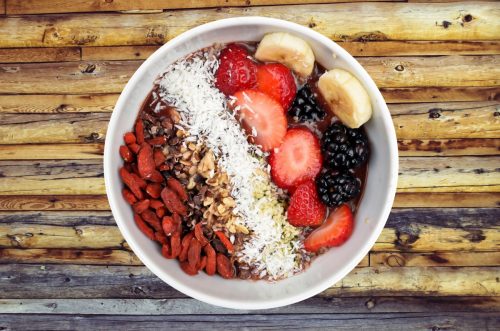Every time I visit my doctor, he never fails to remind me to eat my fruits and vegetables which according to him are very rich in fiber that will help relieve my constipation and normalize my sugar level.
But what really are these fibers and what do they do to our body?

Source: pixabay.com
Fibers are plant-based foods with indigestible parts that pass intact through our intestinal tract doing a lot of work for our digestive system as it makes its journey down the gut. It plays a significant role in digestion and helps us go regularly. It helps maintain our cholesterol levels and regulate blood sugar levels.
According to some health professionals, regular fiber consumption can also aid in preventing cancer.
Types Of Fibers
Fibers that dissolve in water are called soluble fibers, and those that do not are insoluble fibers.
Soluble fibers when ingested soften up and become gel-like substance. It helps decrease blood sugar levels and lower cholesterol.
Insoluble fibers keep their shape while in the body. These fibers speed up the movement of food in the digestive system, make us move our waste regularly and thwarts constipation.

Source: pixabay.com
What Are The Different Sources Of Fibers?
High-Fiber Foods
Whole grains, fruits, beans, and vegetables are excellent sources of fiber.
- Lentils (green, yellow, orange)
- Bran flakes
- Oatmeal
- Barley
- Berries
- Apples with the skin on
- Pears with the skin on
- Banana
- Citrus fruits (orange, grapefruit)
- Beans (black beans, lima beans, kidney beans, pinto beans)
- Popcorns
- Artichokes
- Broccoli
- Turnips
- Green peas
- Brussels sprouts
- Carrots
Supplements
There are also fiber supplements for those people who don’t get enough fiber in their diet. Though these supplements are not as good compared to fibers from whole foods, they can help people who suffer from constipation to regulate their bowel movement. Fiber supplements can also assist those who have allergies to a high-fiber diet.
Why Are Fibers Necessary For The Digestive System?
Fibers feed the good bacteria that live in our gut. These bacteria are also called intestinal flora. Ingesting fibers provide these bacteria a safe shelter and healthy habitat, and in return, they do some of the things that the human body cannot do for itself.
These good bacteria produce the enzymes to break down many of these fibers for our body to absorb its nutrients which are beneficial for weight loss, regulating blood sugar, improving immune function, and restoring healthy brain function as well.
Fibers help absorb water aiding in increasing fecal bulk and ease up the movement of stool in the intestine.

Source: pxhere.com
How Much Is The Ideal Fiber Intake In A Day?
Experts suggest that we take fiber from different sources. Total dietary fiber intake in a day should be from 25 to 30 grams of whole food, and for adults, it can be in an average of about 15 grams a day.
Fiber is indeed essential when it comes to planning our healthy diet. Various studies conducted associates fiber intake with combating and preventing many digestive tract disorders including but not limited to constipation, hemorrhoids, diverticulosis, and decreased risk for colon cancer.
So the next time you go food shopping, consider high-fiber foods on your list.